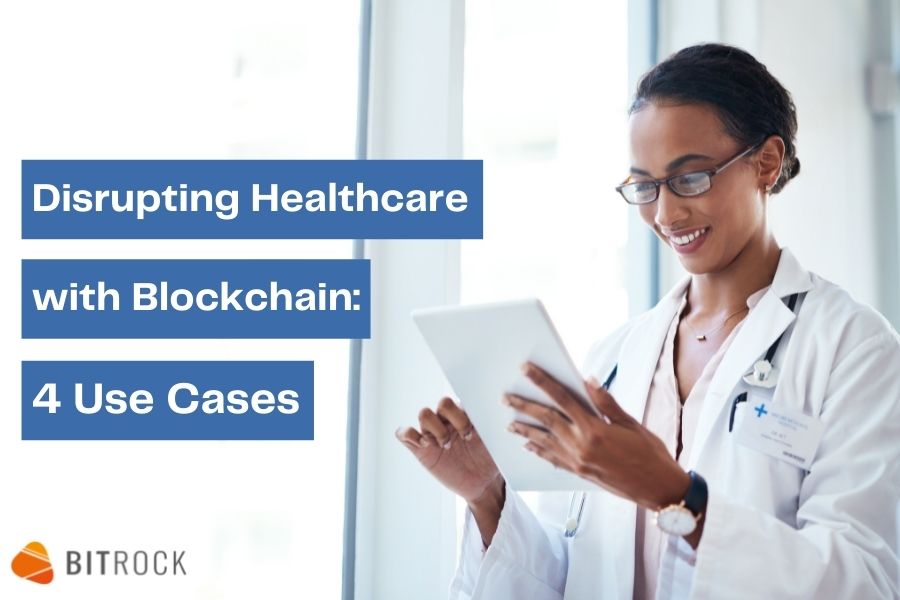The Covid-19 pandemic has changed healthcare forever. Among other things, it demonstrated the importance of data in the health sector. The global response to the pandemic showed that offering high-quality patient care depends on accessing and sharing large amounts of sensitive information in a secure manner – let us think of the logistic complexities of carrying out clinical trials, mass testing, and vaccinations under strict time constraints.
Today, accessing reliable data allows medical practitioners and institutions to pursue a patient-centered approach, i.e. to ensure adequate, personalized services at any time. We are witnessing a paradigm shift, which impacts both patient care quality and financial sustainability. Regardless of each nation’s welfare system, residual or institutional, individualized healthcare is indeed one of the most effective ways to reduce costs and redirect money where it matters most – R&D, hirings, technology, facilities.
The blockchain technology has the chance to play a critical role in supporting the data-driven evolution of healthcare. Thanks to its immutability and decentralization, the distributed ledger can ensure secure information exchange between healthcare providers and stakeholders. Especially in highly fragmented healthcare systems, it may offer interoperability and disintermediation of trust in the collection and management of data. This in turn enables greater agency for patients, who are empowered to access personal information in a simple, transparent manner.
Blockchain and its applications – Smart Contracts, NFTs – can thus have a disruptive impact in some critical areas of contemporary healthcare, which the paper “Applications of Blockchain Within Healthcare” in the peer-review journal Blockchain in Healthcare Today identifies as
- Drug Tracking – necessary to prevent diversion, counterfeit and overprescriptions throughout the supply chain
- Healthcare Data Interchange – the integration of health data among different stakeholders such as hospitals, insurances, national health systems
- Nationwide Interoperability – i.e. ensuring access to health record across different incompatible service providers
- Medical Device Tracking – to increase the efficiency of inventories and save money spent in repurchasing unnecessary devices
Considering the centrality of these areas of intervention, it is easy to see why it is a booming business. The global market size of blockchain applications in healthcare was valued $1,5B in 2020, and it is estimated to reach $7,3B by 2028 (Source: Verified Market Research).
Let us take a look at 4 exciting use cases for blockchain-powered patient care.

Pharmaceutical Supply Chain Management
Counterfeit drugs are a significant problem, especially in developing countries. While figures are somehow difficult to come by, a 2019 OECD/EUIPO report estimated that the global market value of counterfeit pharmaceuticals amounted to $4,4B in 2016. We are talking about 0,84% of global imports in medicines.
In this regard, the implementation of blockchain-enabled services to track pharmaceuticals can offer transparency and security through the entire chain of custody. The immutability of the distributed ledger guarantees the authenticity of medical products from manufacturers to the pharmacist and patient.
In addition to the increase in traceability, blockchain-powered supply chain solutions can also increase efficiency and reduce costs thanks to AI/ML. Advanced streaming event analysis can detect anomalies in real-time and ensure the timely delivery of pharmaceuticals.
Electronic Prescriptions
One of the most crucial stages of the pharmaceutical chain of custody is the prescription to the patient. Here, errors and communication mishaps can have devastating effects on a treatment plan. Let us also consider that in the US, 62% of prescriptions for controlled drugs are handwritten (source: Statista), which increases the risk of mistakes and prevents any automated safety feature.
Blockchain-enabled electronic prescription systems can support healthcare providers in delivering a tailored service that takes into account patients’ specific needs and clinical history. By integrating data from health records into a shared, secure database, blockchain can help prescribers check for allergies, interactions, and overprescriptions – also to avoid drug abuse or diversion.
The paper “Use of Blockchain Technology for Electronic Prescriptions” (2021), published in Blockchain in Healthcare Today, recounts an e-prescription pilot programme carried out in Tennessee clinics between 2021 and 2022. Switching to a blockchain-based electronic system automatized instantaneous patient safety checks (interaction, allergies), which resulted in practitioners changing the prescription 28% of the time. It also allowed them to save significant time – a mean of 1 min 48 sec per written prescriptions.

Electronic Health Record
No effective real-time patient safety check can be carried out without a reliable Electronic Health Record (EHR) system. Allowing patients and practitioners to securely access health records is fundamental both for transparency and clinical reasons. According to a Johns Hopkins study, medical errors, often resulting from uncoordinated or conflicting care, are currently the third cause of death in the US.
Yet, that is one of the very countries in which the theoretical effectiveness of EHR system is hampered by the fragmentation and lack of interoperability of service providers. It is estimated that there currently exist at least 500 vendors of EHR products – other sources claim more than 1 thousand! – with the average hospital running 16 platforms simultaneously.
The blockchain technology can thus be used as a way to connect different data sources and create a secure, decentralized ledger of patient records. In the words of a 2021 study carried out by the US Department of Health and Human Services, “Blockchain-based medical record systems can be linked into existing medical record software and act as an overarching, single view of a patient’s record”.
Device Tracking & IoMT
The transparency and security of blockchain can benefit the management of medical devices throughout the chain of custody, from manufacturer to the hospital and patient. A thorough tracking of medical assets can help identification and verification against counterfeits and unapproved products, as with drugs. It also offers significant financial advantages, saving hospitals’ money spent repurchasing devices.
Implementing blockchain-based solutions for tracking medical devices can integrate with the widespread RFID technology, i.e. radio-frequency identifiers. These cost-effective tags, both active and passive, are currently employed to digitalize the inventory of medical items and drive the effectiveness of resource management. RFID-generated data can thus be transferred to the immutable ledger, to store in a secure and compliant way the history, lifecycle, and salient features of tracked devices.
Blockchain can also provide data integrity for the messages exchanged via sensors and devices employed by patients at home. Remote monitoring is becoming more and more important for telehealth, also thanks to the increased availability of high-speed wireless connectivity (5G) – and this raises concerns about cybersecurity. The blockchain technology can limit unauthorized data access and manipulation, guaranteeing at the same time high transparency and agency for patients.
These are just but a few use cases for blockchain in the healthcare sector. Other potential applications leverage smart contracts for service payment or trustless communication with insurance companies, to name a few. And other use cases will certainly appear in the next future, while the technology continues to develop and spread. What is certain is that the blockchain has the potential to transform healthcare for good, and help improve all stages of the patient journey.
Bitrock has global expertise and proven experience in developing blockchain-based solutions and applications. If you want to know more about our consultancy services, and learn how we can jumpstart your blockchain project, book us a call and we’ll be happy to talk!
Author: Daniele Croci, Digital Marketing Specialist @ Bitrock

